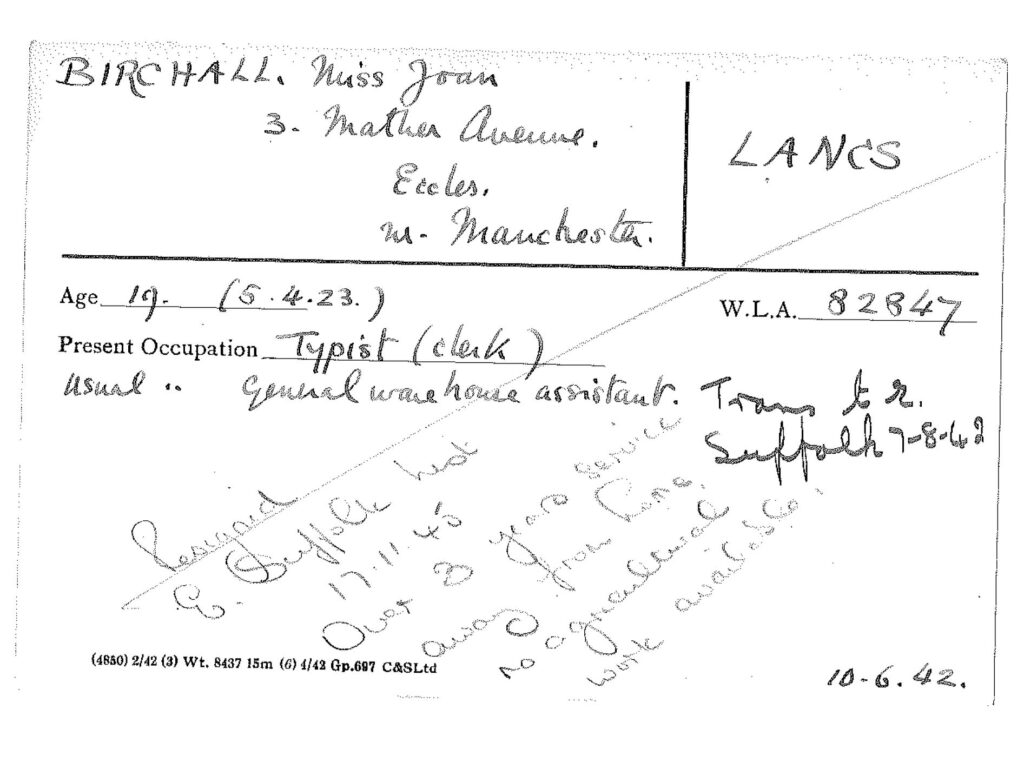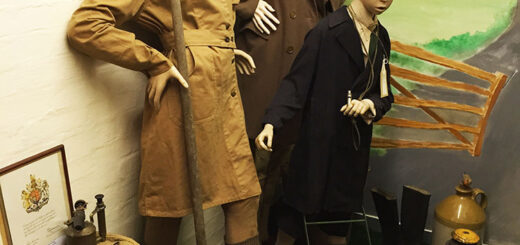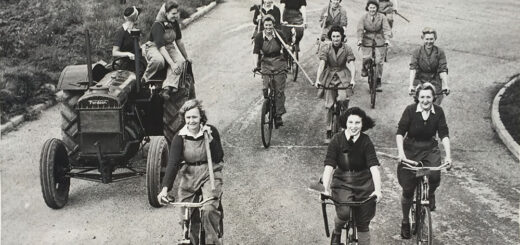New Year’s Eve Message 2022
Greetings to all website readers who have taken some time out of the festive period to read my annual New Year’s Eve Message, where I offer a summary of some of the key milestones in remembering the work of the Women’s Land Army and Women’s Timber Corps.
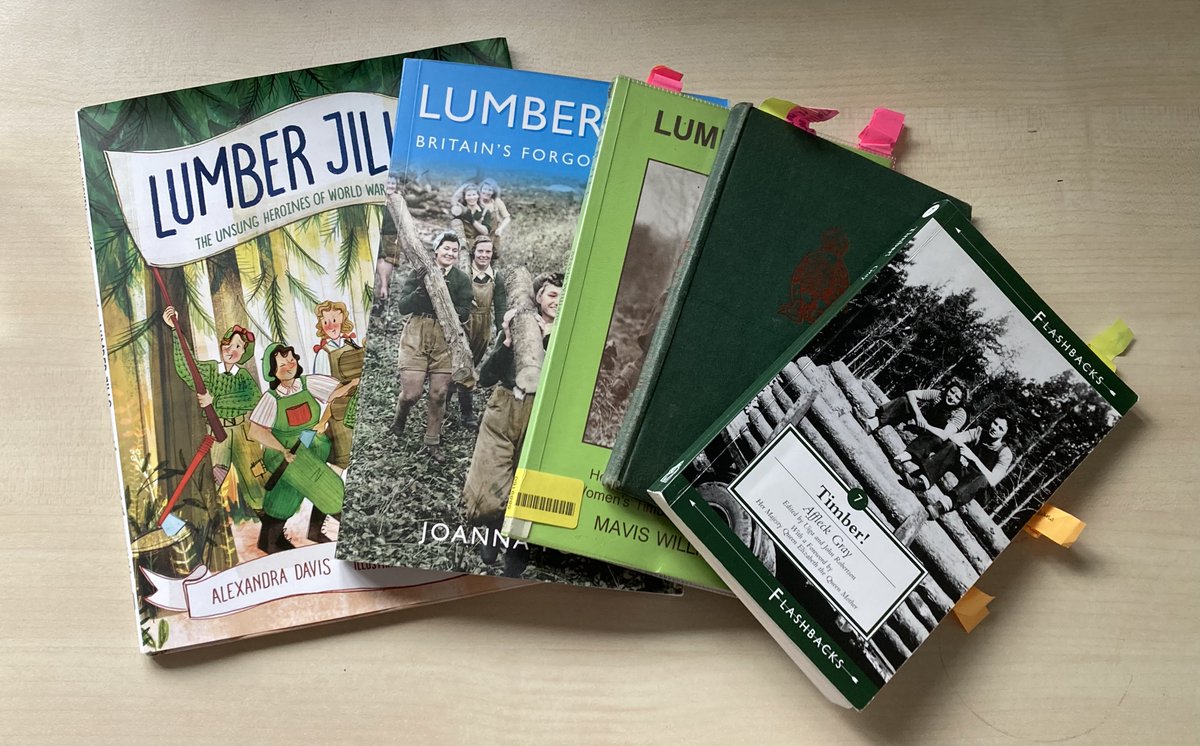
It’s to the WTC that I’d like to turn first. 2022 marked 80 years since the WTC was first set up in 1942. As many of you will know, thousands of women worked as Lumber Jills, to increase our supplies of timber. Lumber Jills undertook a range of roles which included: measuring, census and stock taking, felling, pole selection, pit-prop preparation, haulage, and sawmilling. To mark this important anniversary, I compiled a list of research resources for those keen to find out more about the work these women carried out, including some of the above books.
A highlight of this year was the digitisation of the WLA index record cards by Ancestry, in partnership with The National Archives. You can now search online to see if your family member or relative (if they were born more than 100 years ago) was a member of the WLA. This is an incredible resource, not only for family researchers, but also for people interested in histories of women’s wartime work and agriculture. These cards will occupy the time of many researchers from all walks of life.
There’s been an array of new books published on the Women’s Land Army and the Women’s Timber Corps. These new publications include The Lumberjills Stronger Together: A WW2 saga of courage and friendship by Joanna Foat as well as Victoria Bacon’s new book, Remarkable Women of the Second World War featuring a chapter on Gwen Raggett MBE (whose profile has been featured on the website). This year also saw the re-printing of one of the first academic histories of the WLA, Carol Twinch’s Women on the Land: Their Story During Two World Wars.
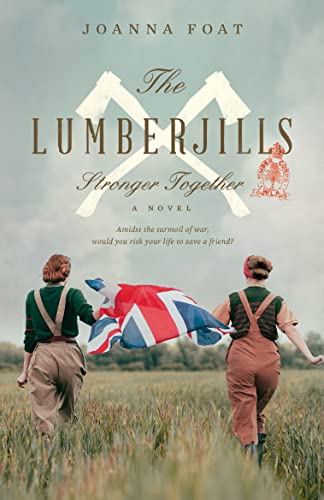
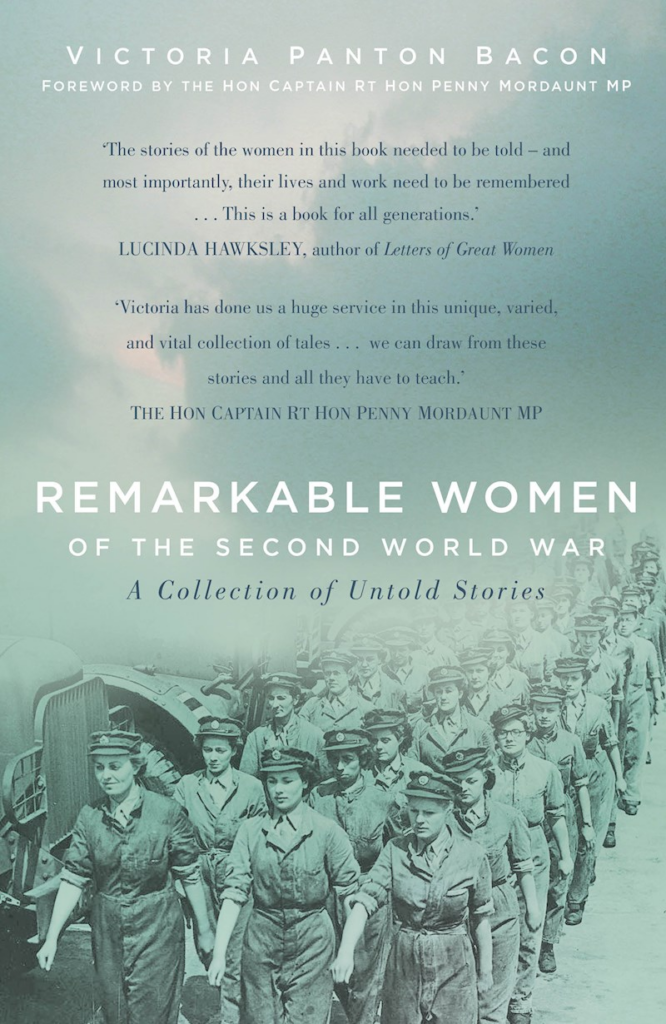
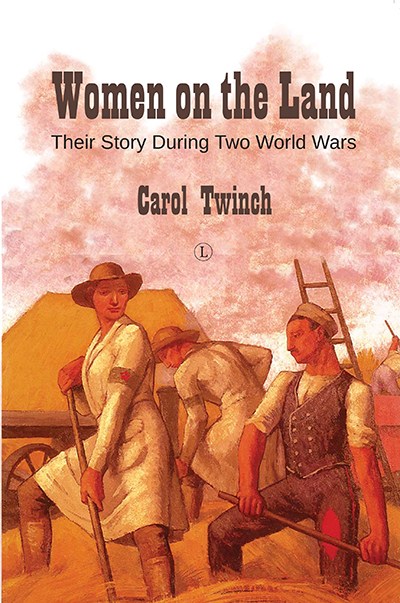
On the website, I’ve marked the start of each month with a poem, written by Land Girls and Lumber Jills on their time in the WLA. These have often been evocative, reflecting on the specific parts of women’s farm work, as well as the delayed recognition for their wartime service. Poetry was one way in which women reflected on what their wartime service in the fields and forests meant to them, whether penned at the time or decades afterwards.
As some of you will know, 2023 will see me enter the third year of my PhD on a history of scrapbooking in the twentieth century. 2023 will be the year that I ‘write up’ my 80,000 word thesis. It’s certainly going to be a busy time, so I won’t be publishing a monthly series as I feel that my time will be better spent adding new Land Girl profiles onto the website, and sharing new archival material. Do stay tuned for this!
I’d like to end by thanking Stuart Antrobus (WLA Historian), Catherine Procter (WLA collector), Emily Rogers (volunteer) and my family who have offered invaluable support for developing the website.
As always, thank you to supporters of the website who continue to honour and remember the work of the WLA and WTC.
Wishing all readers a happy and healthy 2023.
Cherish
